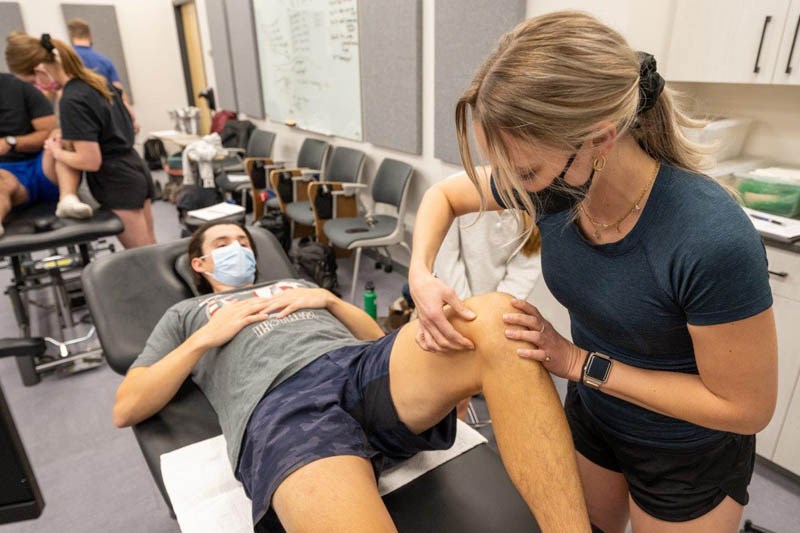Last fall UBC launched its inaugural Master of Physical Therapy – North (MPT-N) program in Prince George to help inspire graduates to stay and practice in northern, rural, and remote communities across British Columbia, as well as to increase access to physical therapy services for patients.
The MPT-N program, which was created with funding from the Government of B.C., is being delivered in partnership with the University of Northern British Columbia (UNBC).
“Taking that first step – it’s a very serene moment for them and you can see the joy in their face and the sense of accomplishment,” said Carli Kerr, a UBC graduate and practicing physical therapist in Prince George.
“I was born and raised in Prince George so I always knew that I would move back here and serve the community in some capacity,” she said.
Sue Murphy, head of UBC’s department of physical therapy, says the program allows students to be based in the north from day one so they’ll be able to make important connections with the communities sooner.
“We have a shared goal to provide care for British Columbians in underserved areas,” added Murphy.
“I’m originally from Whitehorse, so I know about the inequities in the north and how it affects people’s health – specifically Indigenous health,” said second-year MPT-N student Alexis Gee.
“Having a program tailored to learning how to provide care for northerners and rural populations is important to me.”
While UBC physical therapy students at the Vancouver and Prince George sites study the same curriculum, some aspects of the MPT-N coursework have a northern and rural focus, says Dr. David Anekwe, academic site lead for the MPT-N.
“The curriculum provides an opportunity for students in the program to learn about the importance of telerehabilitation for remote areas and how to create meaningful treatment plans for patients who may not have regular access to physio services,” he explained.
During her placements in the north and on Vancouver Island, Gee said she gained a wealth of clinical experience ranging from learning how to treat office workers with carpal tunnel syndrome and post-operative care to creating treatment plans for people involved in serious logging accidents.
“It’s more about training to become a general specialist so that you can treat a range of people who need different levels of support,” she said.
Dr. Anekwe says the program is also looking towards future collaborative learning opportunities with medical students in UBC’s Northern Medical Program— also based in Prince George— and expanding its focus on Indigenous wellness.
“We’re working with the First Nations community at UNBC and will be welcoming an Indigenous Coordinator to the program who will lead our community outreach,” he said.
“It’s so important for our students to learn how to provide culturally safe and effective care in different communities throughout the region, because that’s where they make those important connections that will inspire them to stay and practice.”
Throughout the past year, MPT-N students have been training and extending care in more than 20 northern and rural communities including Burns Lake, Campbell River, Terrace, Creston and Kitimat.



